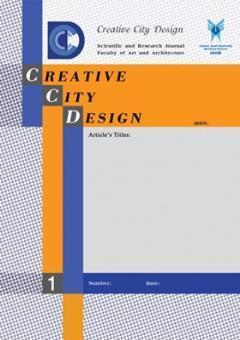Methods of Designing and Creating Concepts in Architecture and Problems in Implementation
الموضوعات : Creative City DesignHamed Kaedi Cholandim 1 , Hossein Kalantari Khalilabad 2 , Kourosh Momeni 3
1 - PhD student, Department of Architecture, Arak Branch, Islamic Azad University, Arak, Iran.
2 - Full Professor, Department of Architecture, Karaj Branch, Islamic Azad University, Karaj, Iran.
3 - Assistant Professor, Department of Architecture, JUNDI.SHAPUR University of Technology Dezful, Dezful, Iran
الکلمات المفتاحية: Design, Concept, Ideation, Architecture, Design Models, Concept Problems,
ملخص المقالة :
Design is a creative process that begins with a spark of imagination and culminates in the creation of a visually appealing product or structure. This journey is the embodiment of the designer's thoughts and ideas, which are expressed in the form of a final plan and the overall concept of the work. However, along the way, challenges may arise that require attention and resolution when necessary. Therefore, identifying and categorizing these challenges is also one of the important actions that architectural designers should not overlook. So in this research, which was conducted by a simple review method with a descriptive approach, the methods of design and the existing problems in this field are discussed. The results of this study showed that there are four methods: analogical, pattern.based, logical, and theoretical, on which many buildings have been designed. The formation of the concept in the design process also involves various types of concepts under the titles: analogical, metaphorical, essential, programmatic, and idealistic, which are derived from design problems that may be extracted using one of the eight methods of theme, analogy, metaphor, experience, symbolism, context, scheme, scenario. The final results of the research showed that in design and concept creation, numerous problems can be identified in two main groups, which can be classified under the titles of: problems outside the designer (design problems) and problems related to the designer, each of which also has its own components.


